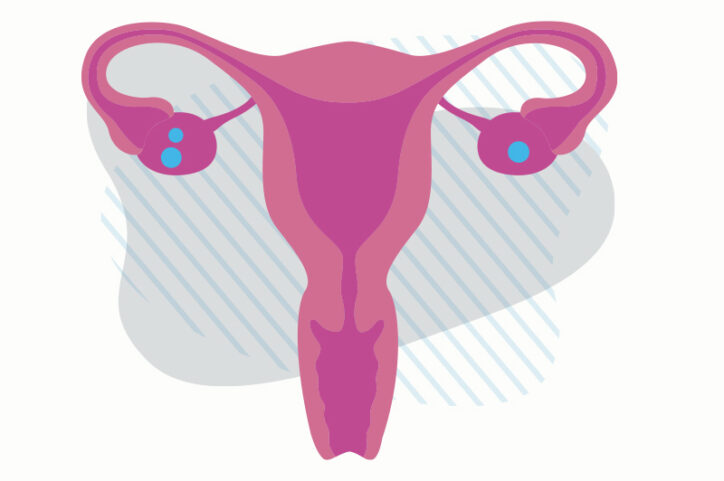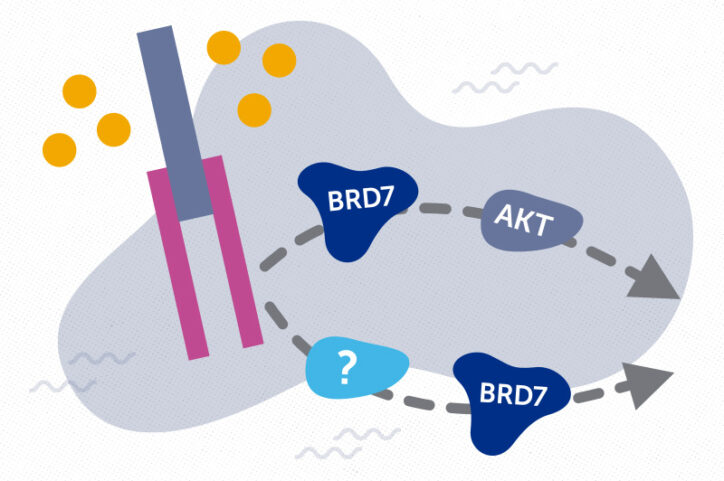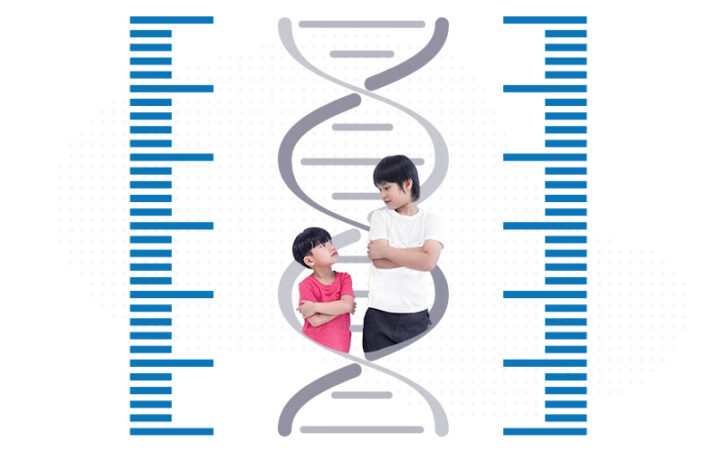Archive for endocrinology
New genetic insights could change how we treat, and talk about, polycystic ovary syndrome
Polycystic ovary syndrome (PCOS) has long been viewed as a hormonal disorder affecting women of reproductive age. However, ongoing research led by Jia Zhu, MD, attending physician in the Division of Endocrinology, and her colleagues is changing that. Their most recent findings indicate that PCOS is part of a broader metabolic and reproductive disorder that ... Read More about New genetic insights could change how we treat, and talk about, polycystic ovary syndrome
Tagged: diabetes, endocrinology, metabolism, obesity
Addressing food insecurity and nutrition challenges in pediatric type 1 diabetes care
Managing type 1 diabetes can be overwhelming for children and families. As children learn to live with the disease, many cut back on visits to their nutritionists. Others face barriers like food insecurity that make it difficult to maintain a balanced diet. And without the proper professional support and access to healthy foods, children’s overall ... Read More about Addressing food insecurity and nutrition challenges in pediatric type 1 diabetes care
Tagged: diabetes, endocrinology, nutrition, research
BRD7 research points to alternative insulin signaling pathway
Bromodomain-containing protein 7 (BRD7) was initially identified as a tumor suppressor, but further research has shown it has a broader role in other cellular processes, including the remodeling of chromosomes and cell cycle progression. Now, Boston Children’s Division of Endocrinology researchers have discovered another purpose for BRD7: It seems to be involved in an alternative insulin signaling ... Read More about BRD7 research points to alternative insulin signaling pathway
Tagged: diabetes, endocrinology, obesity, research
Study shows young adults don’t easily transition to self-care of diabetes
Diabetes is challenging to manage at any age, but even more so for young adults who are handling the condition on their own for the first time. They need to transition from pediatric to adult care as smoothly as possible — but a recent study finds this isn’t happening. Research led by Katharine Garvey, MD, MPH, ... Read More about Study shows young adults don’t easily transition to self-care of diabetes
Tagged: diabetes, emergency medicine, endocrinology, research
Going out of the box to tackle pancreatic cancer
Pancreatic cancers are deadly and hard to treat, in part because they are so often detected at an advanced stage; overall five-year survival rates are about 11 percent. Two separate labs at Boston Children’s Hospital took out-of-the-box approaches to this difficult cancer, and both uncovered some very promising leads. Wiping out pancreatic tumors’ immune defense ... Read More about Going out of the box to tackle pancreatic cancer
Congenital hypothyroidism: New guidance for clinicians
Congenital hypothyroidism is usually caused by a baby being born with an absent or underactive thyroid gland. When not treated, it’s one of the most common preventable causes of intellectual disability. Although newborn screening can identify congenital hypothyroidism and lead to prompt treatment, an estimated 70 percent of newborns worldwide are born in regions that ... Read More about Congenital hypothyroidism: New guidance for clinicians
Tagged: endocrinology, research
Researchers look for ways to start puberty ‘on time’
Children who experience early puberty or delayed puberty may be at risk of having shortened height as adults. They may also feel emotionally unprepared for the changes of puberty, and may feel self-conscious or experience social anxieties as a result. To address this challenge, Boston Children’s researchers are trying to further the study of an important genetic player in ... Read More about Researchers look for ways to start puberty ‘on time’
Tagged: adolescent medicine, endocrinology, primary care
Explaining endometriosis: What parents and teens should know
People with uteruses know that menstruation can bring cramps, general discomfort, mood swings, and other symptoms each month. But, just how much discomfort and pain is normal during your period? For more insights on severe period pain — and endometriosis in particular — we spoke with Dr. Jessica Shim in the Division of Gynecology and ... Read More about Explaining endometriosis: What parents and teens should know
Tagged: adolescent medicine, endocrinology
The genetics of height: Coming close to cracking the code
More than 20 years ago, as a pediatric endocrinology fellow at Boston Children’s, Joel Hirschhorn, MD, PhD, saw many children with unusually short stature, and would often tell parents that their child was growing slowly because of genetic factors. But no height-related genes had yet been identified — in fact, scientists believed there were so ... Read More about The genetics of height: Coming close to cracking the code
Out of balance: How hormones can affect your child’s period
If your tween or teen is experiencing irregular periods, they aren’t alone. In the first two years after getting a period, you should expect fluctuation in cycle length and the number of days their period lasts. However, there are period symptoms that go beyond what makes a “normal” irregular period. If your child’s period hasn’t ... Read More about Out of balance: How hormones can affect your child’s period
Tagged: adolescent medicine, endocrinology, primary care











